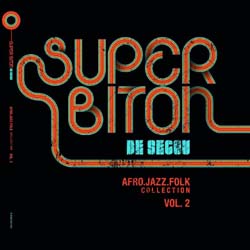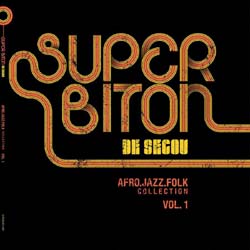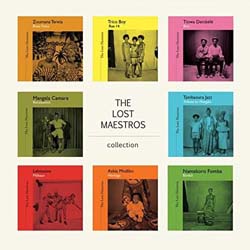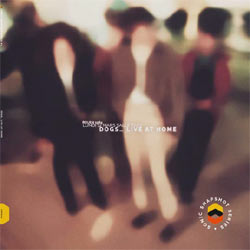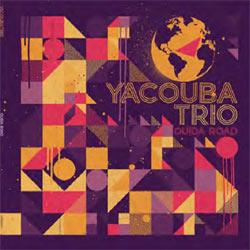Description
The story of the Super Biton of Ségou
With the Super Biton de Ségou, we literally go back in time we meet in the sixties and seventies : Louis Armstrong in 1960 and Duke Ellington in 1967 during their African tours which marked and gave vocations to countless musicians, the beginnings of amplified music, Radio-Brazzaville and Congolese music influenced by Cuban percussions or the national artistic and cultural biennials which rewarded the best orchestras in Mali. All these crucial elements have enabled Mali to acquire musical orchestras existing under the aegis of the State of Mali which have shone throughout Africa: the Rail Band of Bamako, the Ambassadeurs du Motel, the Goffé Star of Kayes; the Kéné Star of Sikasso, the Kanaga of Mopti, the Ensemble Instrumental of Mali, the Mystère Jazz of Tombouctou and of course the Super Biton of Ségou.
Born in the early sixties through various orchestral mergers such as L’Alliance Jazz de Ségou, the Regional Orchestra of Ségou or the Echo of the Bambara Kingdom of Ségou (ERBAS), Le Super Biton de Ségou has crossed the decades until today under this name since 1973, year during which a young student, future Prime Minister of the Transition in 1992, Zoumana Sacko, renamed the formation in homage to the mythical king of the Bambara Kingdom of Ségou, Mamari Biton Coulibaly, who reigned from 1712 to 1755.
At the heart of this formation, we find the late Amadou Bah, nicknamed “Armstrong” following his remarkable meeting with the American trumpeter during his second African tour in 1960. He is the conductor of the Segovian formation respected by all and who knew how to unite around him from the sixties a fine team of musicians, 19 in total, all more talented than the others with each his specialty. The knowhow of Super Biton has earned it over the years to establish itself as one of the best orchestras in Mali, winning the National Biennials in 1970, 1972, 1974 and especially 1976. During this last Biennale, on March 18 to be precise, the Super Biton was even crowned the National Orchestra, declared out of competition and nationalized by a decree from the official journal.
This national recognition anticipates recognition throughout Africa and then internationally. First, the Festac Festival in Lagos in 1977, its unique formula, Bambara jazz, which mixes amplified instruments and brass, Cuban percussion and emphasis on singing, catches the eye of the European public. The group then flew to France as part of the Angoulême Jazz & Métis Music Festival in 1983. And two years later, the Palais des Glaces in Paris hosted the Super Biton, a prelude to a tour in France, in the Netherlands and then in Germany in 1986. From 1988, it was the crossing of the desert that ended in the early 2000s with the reformation of the Super Biton, now led by Mama Sissoko.
This second volume of the Afro.Jazz.Folk Collection brings together 11 unreleased vinyl titles recorded by Super Biton between 1970 and 1980. Remastered by Raphaël Jonin, these compositions represent the trademark of Super Biton, namely a clever dosed mix with electric modernity and promotion of Bambara cultural heritage while being open to other influences, such as Cuban music for example.
Difficult to find today and selected by the 3 remaining members of the group, Modibo Diarra,
Mama Sissoko and Aboubacar Kissa (very recently disappeared), these 11 tracks are a vibrant
testimony to the musical effervescence that reigned in Ségou and in Mali in these years of
overflowing cultural creativity and a tribute to all its talented musicians who crossed the road
to Super Biton.
1. Nantan
2. Bouguel
3. A Tou N Diaye
4. Farafina
5. Ladilikan
6. Diarabi Muso
7. Djiri Maridie
8. Kibaru 75
9. Mariana
10. Moriba
11. Waraba Tchatcho
GENRE: World/African Music
BARCODE: 3770015731158
RELEASE DATE: 09/02/2024

